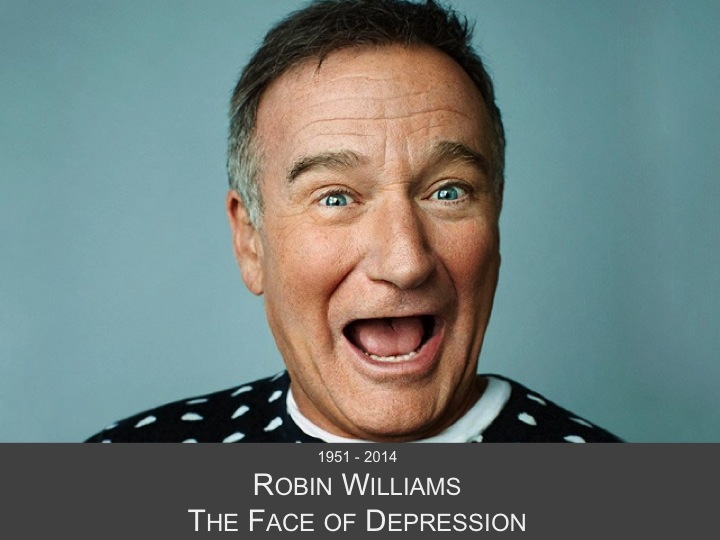Robin Williams' Suicide Explained – Part 1

The shock of Robin Williams' death, an apparent suicide, is still reverberating. Friends, co-stars, contemporaries, and family spoke of their shock and sadness to hear of his passing, and paid tribute to the versatile funny man.
With such tremendous financial, professional, and social success with friends and loved ones, virtually, around the world, how does someone like Robin Williams–whose career had been spent making people laugh and feel joy and happiness–find himself so alone, sad, and depressed? So much so that in a fleeting moment he forgets, ignores–or perhaps never really knew–all "he has" and sees only despair and hopelessness and seeks suicide as the only way out?
This question–specifically regarding a situation like Robin Williams'–is simply baffling to those who do not understand, or who have not experienced depression. So we asked an expert.
Dr. Robert Dindinger, Child & Family Psychology, and contributing author to FirstAnswers.com shed a little light on the subject.
Dr. Dindinger does not know Robin Williams, so he can only compare similarities of William's situation with situations Dr. Dindinger is familiar with. Now, the following description should not be considered as an exact description of Williams, but it does open possibilities to better understanding how "having it all," like Williams, does not show the whole picture.
Trust
When asked when someone as successful, respected, and loved as Robin Williams can be so depressed to commit suicide, Dr. Dindinger said that people with severe depression often lacked development of trust in their life growing up. Trust that people care about you and will protect and help you. Trust in the nature of people–people are generally good. Trust that people are sincere when they compliment or express feeling toward you. Where positive development of trust creates confidence in life, lack of development or external influences like trauma or abuse during growth years damage this development of trust.
When you lack a healthy foundation of trust, you go through life preparing for when people are going to hurt you...instead of focusing on positive growth.
Masks–A lonely, dark world
To cope and protect their true self, someone with trust issues often creates masks. Masks can be a false persona playing a part. A character, almost. Dr. Dindinger explains that in the case of creative people, as is the case of an actor like Williams, they put forward these masks or characters of entertainers, funny guys, or even "the mean, ornery guy," so when people do hurt them, it's not the true self that was hurt but the character, "Funny Guy."
Does this describe Williams? Obviously, we don't know for sure, but Dindinger says it could. He says maybe Williams became the "class clown" to protect himself, and if this is true, over time this "class clown" mask was focused on, developed and built upon, and as a result, big parts of his life were neglected–Like how to develop healthy positive relationships. Instead of developing the "natural worth" of the true self, the mask is developed and self worth declines and becomes less developed–contributing to an onward increase of depression.
So how can someone "so loved and respected" feel alone and depressed? Because, according to someone with depression who has developed a protective mask, people aren't sincere when they compliment or show love (lack of healthy development of trust leads to an inability to trust people's sincerity). "They only love the mask or Character: "Funny Guy." "People with masks don't feel known" states, Dindinger. When complimented, people with masks often say to themselves, "They wouldn't say that if they really knew me. I'm not really that way." Or, continues Dindigner, people with masks are skeptical and protective of themselves assuming people are just schmoozing to get something. So instead of feeling a true, and accurate, sense of great satisfaction and accomplishment–depressed people with masks fall deeper into distrust and loneliness, afraid and feeling helpless and hopeless. Cue in negative, suicidal thoughts.
It is synonymously redundant to say "depression is sad," but can you imagine a world surrounded with praise, success, affection from friends and loved ones....and feel mostly, or perhaps entirely, alone and afraid? It is truly sad. Not only for the depressed, but for those family and loved ones who have, for years, expressed love not knowing it has fallen on deaf ears, incapable of accurately interpreting and internalizing the praise and affection.
There are always choices. Perhaps those with depression just need to take one more little step toward help instead of suicide. And those not suffering from depression can take one more step toward being more understanding learning how to help someone with depression.
 RSS Feed
RSS Feed